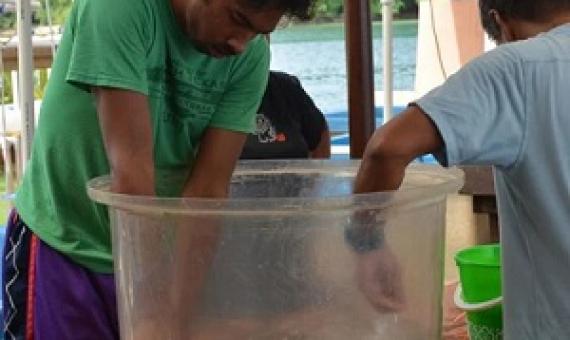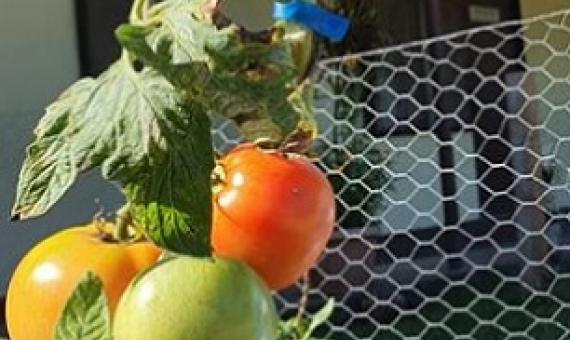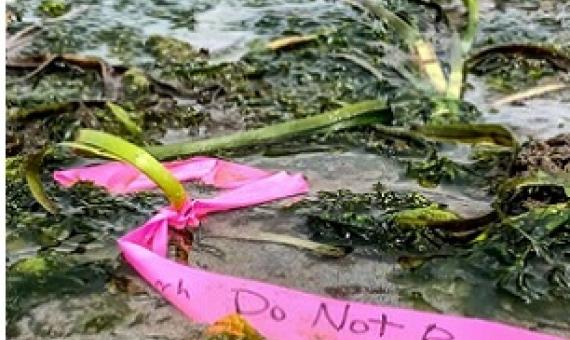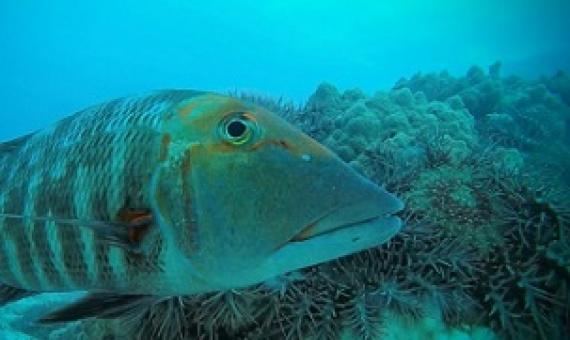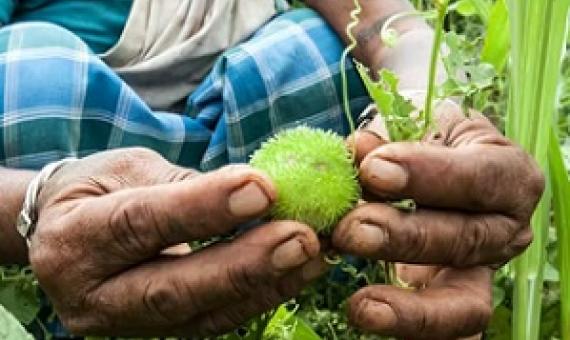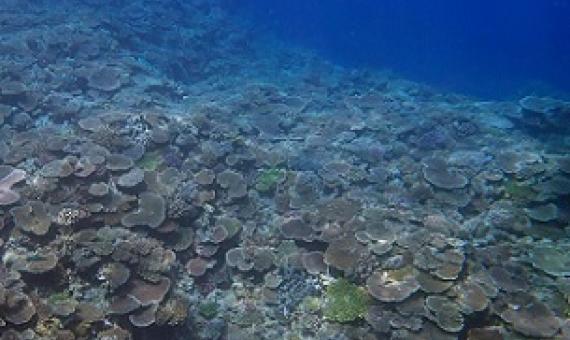A new study by the Palau International Coral Reef Center has determined that giant clams are abundant and widespread in Palau...The study...reported that in spite of pressures from tourism and fishing, giant clam populations remain abundant and healthy.
As coastal areas become increasingly developed, concerns are growing about levels of artificial light at night (ALAN) and its potential impacts on the marine environment.
Confining conservation efforts to only 30% of Earth’s land may render a fifth of mammals and a third of birds at high risk of extinction, according to a new study.
In an oceanic omen for climate change's intensifying effects, Cornell-led research shows that seagrass—through large swaths of intertidal meadows in the Pacific Northwest—suffers from a lesion-filled wasting disease. The grasses' once-vibrant plant root systems are deteriorating, too.
Reef fish, such as emperors, tropical snappers and rockcods, help keep numbers of crown-of-thorns starfish in check on the Great Barrier Reef, according to a new study from the Australian Institute of Marine Science.
The world lost more than 12 million hectares of tropical forest in 2020, an area about half the size of the UK. Tropical forests contain much of the world’s animal and plant species and store more than half of its terrestrial carbon.
Tropical forests are converted at an alarming rate through deforestation. A new study, published in Science, shows that regrowing tropical forests recover surprisingly fast on abandoned land.
Tourism and urban development as drivers for invertebrate diversity loss on tropical islands
Oceanic islands harbour a disproportionately high number of endemic and threatened species. Rapidly growing human populations and tourism are posing an increasing threat to island biota, yet the ecological consequences of these human land uses on small oceanic island systems have not been quantified. Here, we investigated and compared the impact of tourism and urban island development on ground-associated invertebrate biodiversity and habitat composition on oceanic islands.
Chinese scientists have mapped out the potential global effects of Fukushima discharge, suggesting that the contaminated water, if poured forth, may sprawl onto the entire Pacific Ocean within 10 years. The study, published online in the peer-reviewed journal National Science Review, showed
Researchers from the Okinawa Institute of Science and Technology Graduate University (OIST), the University of Tokyo, and the Okinawa Prefecture Environment Science Center have developed a tool that can determine the diversity of hard corals on a reef through analyzing the DNA in a sample of seaw

